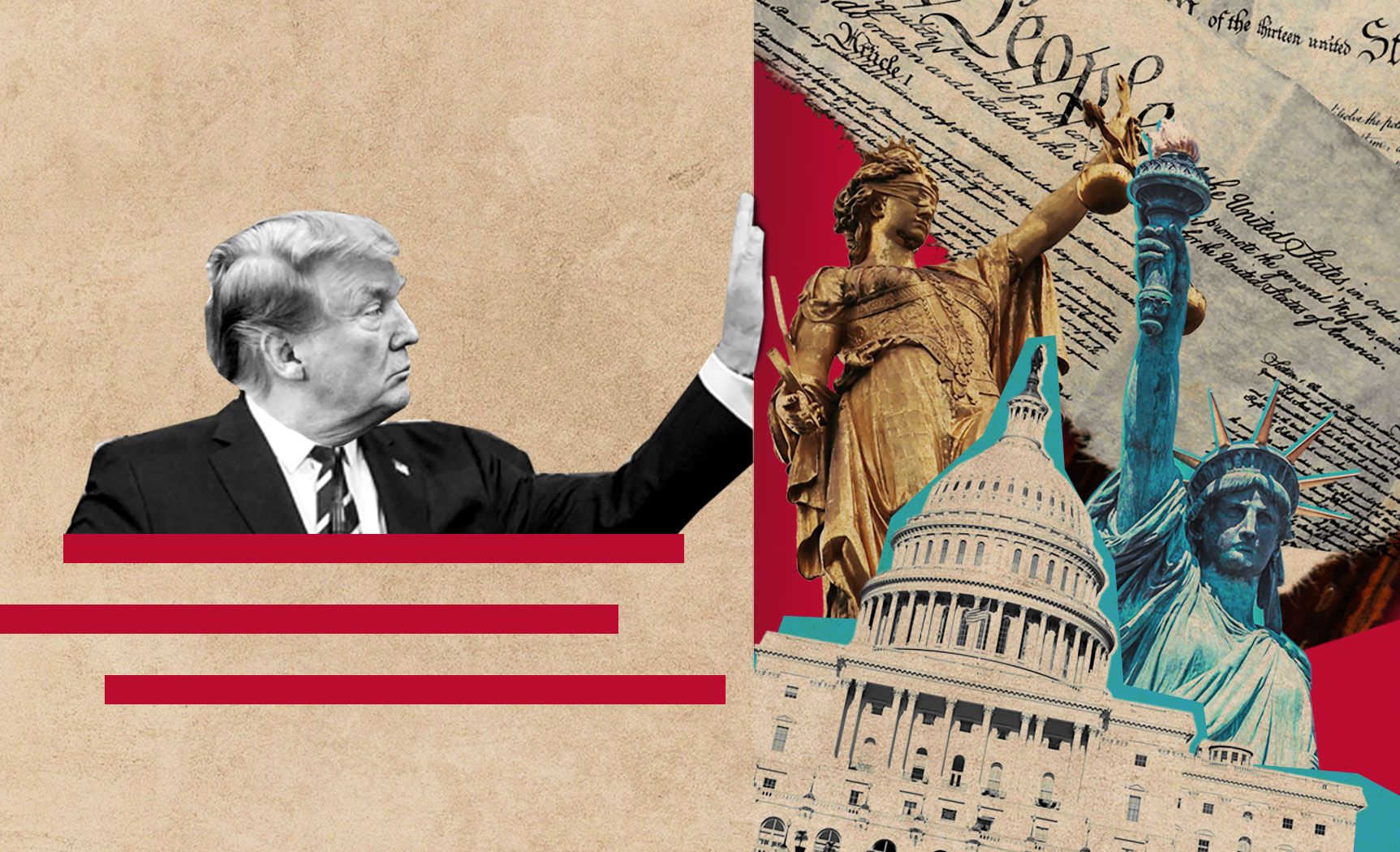Each January, Eurasia Group, our parent company, publishes its forecast of the top ten global political risk stories of the coming year. You can read the full report here:
The report's authors, Ian Bremmer (our boss) and Cliff Kupchan (fan favorite), raised a lot of eyebrows today by choosing US politics as risk #1 for 2020. We'll detail that choice here, and then touch (very) briefly on the rest of this year's list.
#1 - Rigged!: Who Governs the US? -If the November US presidential vote is close—most of us think it will be—the loser will challenge the legitimacy of the result. And unlike the contested George W. Bush-Al Gore presidential election 20 years ago, this year's loser, regardless of party, is much less likely to simply accept a court-decided outcome as the final word.
Making matters more intense in 2020: The United States is already a deeply polarized nation and, unlike in 2000, the current president believes America's divisions are politically useful.
If Trump wins, Democrats will charge Republicans with "voter suppression" in closely contested states and accuse them of benefitting from foreign interference, particularly from Russia, in the election process. If Trump loses, he'll charge that millions of people voted illegally and that a hopelessly biased media distorted the process.
Whatever the veracity of these charges, millions of Americans on the losing side will decide to believe them—no matter the available evidence. That's why the controversy is as likely to play out in (potentially violent) protests as in the courts.
Then there's the impact, even before votes are counted, on US foreign policy and its implications for other countries. Bremmer and Kupchan argue that President Trump is more likely to "pet the dog" than to "wag the dog," meaning that he's more likely to make bad diplomatic deals that give way too much to Xi Jinping, Vladimir Putin, or Kim Jong-un than to deliberately start a war. (Iran news notwithstanding.)
The bottom line: Inside the distracted and divided military superpower, a president prone to erratic decision-making and an opposition that hates him will face voters ready to render judgment on the political status quo. What could possibly go wrong?
On to the rest of the list…
#2- The Great Decoupling
In 2020, the ongoing decoupling of the US and China will move beyond strategic technologies like semiconductors, cloud computing, and 5G into broader trade and investment. This trend will plague the $5 trillion global tech sector, but also create a deepening economic, and cultural divide that could become permanent, casting a chill over global business.
#3- US/China
As this decoupling occurs, US-China tensions will provoke a more explicit clash over national security, influence, and values. The two sides will continue to use economic tools in this struggle—sanctions, export controls, and boycotts—with shorter fuses and goals that are more explicitly political. Confrontation will grow over Hong Kong, Taiwan, the Uighurs, the South China Sea, and a host of other issues.
#4- MNCs not to the rescue
Far from filling the gaps on critical issues like trade liberalization and climate change created by underperforming national governments, multinational corporations will face new pressures from political officials, both elected and unelected, eager to reassert their authority in 2020.
#5- India gets Modi-fied
Prime Minister Modi's recent actions signal that, to bolster his popularity, he'll move toward religious and economic nationalism and away from the reforms that have lifted the country's economy. State-level opposition to Modi's moves will further polarize the country.
European officials will chart a more independent course this year—on trade, regulation, and even security. Friction with both the US and China is inevitable.
#7- Politics vs. Economics of Climate Change
As erratic weather takes a heavier human, economic, and political toll around the world, climate change will put governments, investors, and society at large on a collision course with corporate decision-makers, who must choose between carbon reduction commitments and their bottom lines.
#8- Shia Crescendo
The failure of US policy toward Iran, Iraq, and Syria creates serious risks for the Middle East. Though their histories suggest that neither Trump nor Iran's leaders want all-out war, they might well stumble into a costly confrontation. Iraq is now caught between Iran's orbit and state failure. Feckless US policy in Syria isn't helping.
#9- Discontent in Latin America
Following a year of protests and political turnover in multiple Latin American countries, public anger over sluggish growth, corruption, and low-quality public services will keep the risk of political instability high across the region in 2020. Vulnerable middle classes expect more from their governments.
#10- Turkey
President Erdogan's fortunes are in steep decline. Key political allies are becoming rivals, Turkey's economy is in trouble, and outside pressures are growing. When things go badly, Erdogan tends to lash out.
You don't see populism, Brexit, North Korea, Syria, or Venezuela on this list. That's not because Bremmer and Kupchan expect these stories to disappear, but because they believe that all of them remain long-term issues that are likely to remain (relatively) quiet through 2020.
